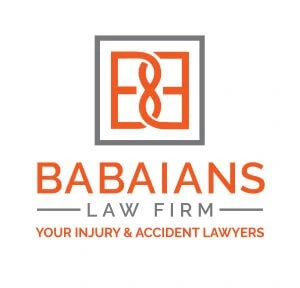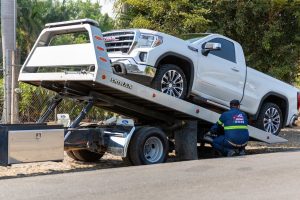
Getting into a car accident in Los Angeles can leave you shocked, injured, and unsure of what to do next. Between the stress of physical injuries, mounting medical expenses, and confusing insurance claims, it’s normal to feel overwhelmed. But taking the right steps immediately after a car crash is critical to protecting your health, rights, and potential for fair compensation.
At Babaians Law Firm, we understand how complicated and traumatic a car accident can be. Our experienced personal injury lawyers are here to guide you through each step of the claims process and help ensure you don’t make costly mistakes along the way.
Step 1: Ensure Safety and Seek Medical Attention
The first and most important step after a car accident is to check yourself and others for injuries. Always prioritize your safety, whether involved in a minor fender bender or a serious collision. If possible, move your vehicle to a safe area and call 911 to report the accident and request medical assistance.
Even if you feel fine, get checked out by a medical professional. Some serious injuries, such as traumatic brain injuries, internal bleeding, or whiplash, may not show symptoms right away. Delaying treatment can affect your health and weaken your personal injury claim.
For a free legal consultation, call (818) 334-2981
Step 2: Call the Police and File a Report
A police report is a crucial piece of evidence in any car accident case. When officers arrive at the scene, they’ll assess the situation, document the damages, speak to witnesses, and file an official report.
This document can help determine who was at fault and serve as objective evidence when dealing with an insurance adjuster or accident attorneys later. If the police can’t come to the scene, you must file a report at a local Los Angeles police station as soon as possible.
Step 3: Exchange Information with the Other Driver
Under California law, any driver involved in a car accident that results in injury or death must provide specific information to all relevant parties. This includes not only the other driver but also injured passengers and law enforcement officers at the scene. Be sure to collect and provide the following:
- Full name and current residence address
- Names and current residence addresses of any injured occupants in your vehicle
- Driver’s license number
- Vehicle registration number
- License plate number
- Insurance company name and policy number
- Name and current residence address of the vehicle owner (if different from the driver)
Additionally, you are legally required to render reasonable assistance if someone is injured. This may include transporting the injured person or making arrangements for their transport to a hospital or doctor if treatment is clearly needed or requested.
It’s important to remain calm and courteous, but avoid admitting fault or making statements that could later be used against you during the claims process. Even a simple “I’m sorry” can be misconstrued by insurance adjusters or accident attorneys as an admission of liability.
Click to contact our personal injury lawyers today
Step 4: Document the Accident Scene
Substantial evidence is the foundation of any successful personal injury claim. Take the time to gather the following:
- Photos and videos of vehicle damage and the road conditions
- Skid marks, debris, and damage to surrounding property
- Close-ups of your injuries
- Weather conditions at the time of the accident
- Traffic signs, signals, and visibility issues
- Location and layout of the scene
Collect witness statements and their contact information, if possible. These neutral accounts can greatly support your case, especially if the fault driver disputes responsibility.
Complete a Free Case Evaluation form now
Step 5: Notify Your Insurance Company
Most auto insurance policies require you to report accidents promptly. When you notify your insurer, stick to the facts. You are not obligated to give a recorded statement without consulting an attorney, especially if you were injured.
Avoid accepting early settlement offers from an insurance adjuster when discussing your property damage or medical expenses. These offers are often much lower than what you may actually be entitled to.
Step 6: Understand Liability and Fault in California
California follows a comparative fault system, meaning each party can be assigned a percentage of fault. Even if you were partially at fault, you may still be eligible for compensation, though it may be reduced proportionally.
It is critical to determine who is liable, whether a fault driver, a reckless motorcycle rider, or even a city for dangerous road conditions. An experienced attorney can help collect evidence and build a compelling argument on your behalf.
Step 7: Track All Medical Expenses and Damages
Keep a detailed record of all the medical expenses related to your injuries, including:
- Emergency room visits – Document any ER visits immediately following the accident, as they establish the urgency and severity of your injuries.
- Surgeries and treatment – Keep records of any surgeries, ongoing treatments, or specialist appointments necessary for your recovery.
- Prescription medications – Save receipts and documentation for medications prescribed to manage pain, inflammation, or other symptoms.
- Physical therapy – Track all physical therapy sessions, which may be required to restore mobility and function after certain injuries.
- Mental health counseling – Include any therapy or counseling you attend to address emotional distress or trauma related to the accident.
You should also document lost wages, reduced earning capacity, and any property damage to your vehicle. These costs are the basis of your personal injury claim and help determine the compensation you deserve.
Step 8: Be Cautious of Insurance Adjusters
Insurance companies often prioritize minimizing payouts. That’s why dealing with an insurance adjuster can be tricky. They may try to get you to downplay your injuries or admit fault.
Never agree to a settlement without speaking to one of our personal injury lawyers. We know how to counter lowball offers and push for the full value of your claim, including pain and suffering, future medical care, and sometimes, punitive damages.
Step 9: Hire a Skilled Car Accident Attorney in Los Angeles
Navigating a personal injury case on your own can be overwhelming. Hiring a trusted accident attorney from Babaians Law Firm ensures you have a strong advocate in your corner.
Benefits of hiring our firm include:
- Immediate legal guidance on your rights
- Help with filing paperwork and handling deadlines
- Access to medical experts and investigators
- Thorough review of your accident and witness statements
- Strong negotiation power with insurers
- Preparation for trial, if necessary
Whether your accident involved a commercial truck, another vehicle, or a motorcycle accident, we can investigate the facts and work to hold the negligent party accountable.
Step 10: File Your Personal Injury Claim
California law allows you to file a personal injury claim within two years of the accident date, but the sooner you act, the better your chances of securing fair compensation.
Your claim may include:
- Medical bills – Include all current and anticipated medical expenses resulting from the accident, such as emergency care, surgeries, and rehabilitation.
- Lost wages – Document the income you’ve missed due to your inability to work while recovering from your injuries.
- Pain and suffering – This covers the physical pain and discomfort you’ve endured from the accident and injuries.
- Vehicle repair or replacement costs – Claim the cost of repairing or replacing your vehicle if it was damaged or totaled in the accident.
- Emotional distress – Compensation may be available for psychological effects like anxiety, depression, or trauma following the accident.
- Long-term disability or disfigurement – If your injuries result in permanent disability or visible scarring, you may be entitled to additional compensation for the lasting impact on your life.
In cases of gross negligence or intentional misconduct, such as DUI, you may also pursue punitive damages to punish the offender and prevent future harm.
Common Causes of Car Accidents in Los Angeles
Understanding what caused your accident can play a major role in proving liability. Some of the most common causes include:
- Distracted driving (texting, eating, etc.) – When drivers divert their attention from the road, even for a moment, it significantly increases the risk of a crash.
- Driving under the influence – Alcohol and drugs impair judgment, reaction time, and coordination, making intoxicated drivers a danger to everyone on the road.
- Speeding or reckless driving – Exceeding speed limits or making aggressive maneuvers reduces a driver’s ability to respond safely to sudden hazards.
- Poor weather conditions – Rain, fog, and other weather issues can limit visibility and traction, contributing to higher accident rates.
- Dangerous road conditions (potholes, debris, lack of signage) – Poorly maintained roads or missing warning signs can cause drivers to lose control or miss important hazards.
- Mechanical failure – Brake failure, tire blowouts, or other vehicle malfunctions can lead to accidents, especially at high speeds.
- Negligent drivers (especially in motorcycle accidents) – Careless or inattentive drivers pose a serious threat, particularly to motorcyclists, who are more exposed and vulnerable.
No matter the cause, having a legal team that can investigate every angle and fight for your rights is essential.
Contact Babaians Law Firm Today
If you’ve been injured in a Los Angeles car accident, don’t navigate the legal process alone. At Babaians Law Firm, our skilled personal injury attorneys are committed to helping you recover the compensation you deserve, whether it’s for medical bills, lost wages, property damage, or emotional suffering.
We’ll stand by your side every step, from gathering crucial evidence to negotiating with insurance companies and, if necessary, fighting for you in court.
Call (818) 334-2981 for your free initial consultation; there’s no cost to get started. Visit our website to learn more about your rights and how we can help.

